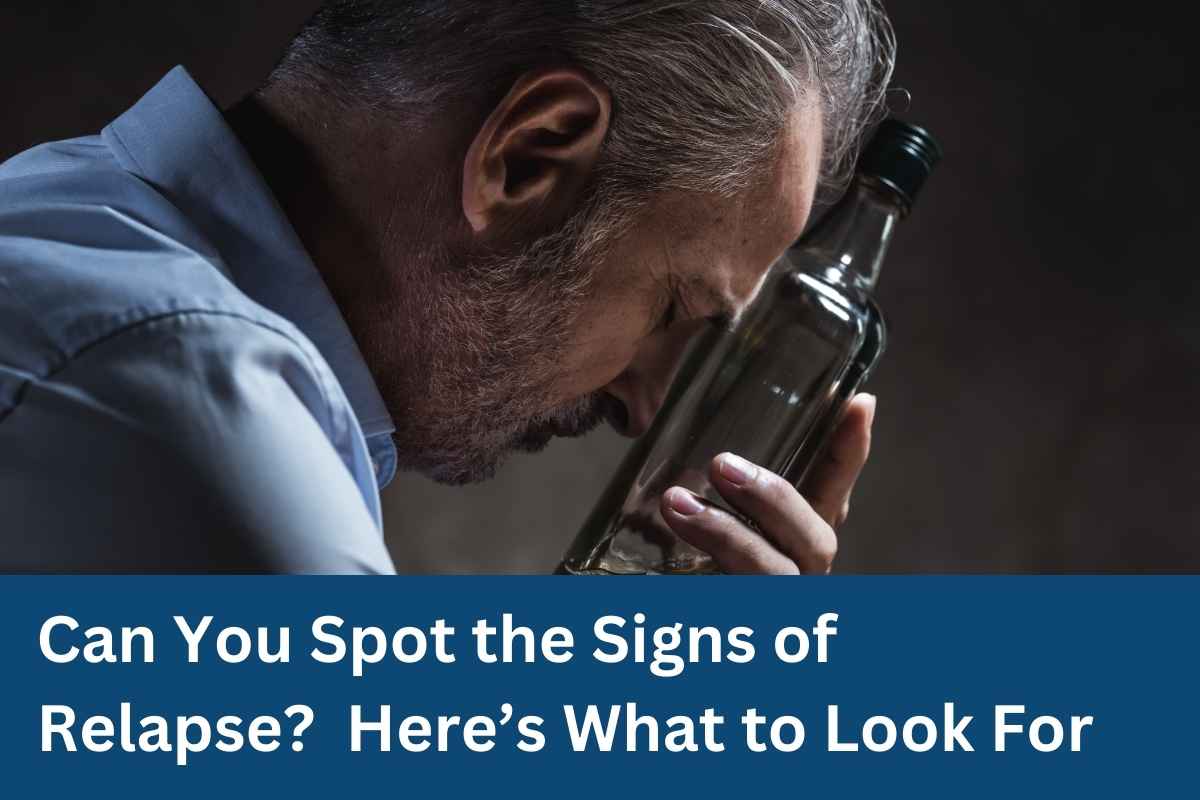By: Design for Change
Categories:
Can You Spot the Signs of Relapse? Here’s What to Look For
You are here:The early warning signs of relapse may be subtle and go undetected until it’s too late. Studies show that about 85% of people in recovery experience a relapse within the first year following treatment. Even though relapse is common, no one truly wants to experience it. So, what causes relapse and how can you prevent it? Here are some things to look for if you or a loved one are in recovery from substance use.
Why Do Relapses Happen?

Of course, many other factors can play a role in relapse such as relationship issues, stress, peer pressure, work problems, and more. Despite the reasons behind a relapse, it doesn’t mean the person failed at recovery. It simply means they need additional support or more time in treatment.
5 Common Warning Signs of Relapse
When a person relapses, they need compassion and support to help them get back on the path to sober living. The best way to help yourself or a loved one avoid relapse is to know the warning signs. The signs are often easy to hide. The person may gradually resume drinking or using their drug of choice without being detected. Nonetheless, if they continue, there is a risk of overdose.
It’s more likely for people who relapse to overdose since they have been sober for some time. Their tolerance level is low. If they continue to use the amounts previously tolerated, they will experience adverse effects or overdose.
Here are some of the most common signs of relapse to watch for in early recovery:
> Sudden changes in behavior.
The changes in behavior may include neglecting responsibilities and changes in demeanor such as irritability, moodiness, or negative attitude. A person who has relapsed will try hard to hide the signs. Over time they begin to feel like a failure and give up trying to hide the relapse.
> Reemerging or new mental health condition.
Sometimes, a mental health disorder is brought on by substance use. In other cases, an existing mental health disorder can be exacerbated by substance use. The most common mental health conditions that contribute to relapse are PTSD, anxiety, and depression. A person who relapses may feel extremely sad, agitated, or worry a lot. They may also withdraw from family, friends, or coworkers.
> Failure to attend support groups or therapy sessions.
Support groups and therapy sessions are vital to staying on track during early recovery. They provide ongoing guidance and keep a person grounded as they acclimate to sober living. Avoiding these meetings is a sign of pending relapse or that relapse has already happened.
> Being with people who drink or use drugs.
Resuming relationships with people who use drugs or alcohol is a major sign of relapse. The number one trigger for relapse is hanging out in places that promote alcohol or drug use.
> Changes in physical appearance.
Drug and alcohol use often takes precedence over all other priorities including personal hygiene and appearance. Someone who generally pays attention to their appearance will neglect daily grooming habits. They may also lose or gain weight and show signs of not getting enough sleep.
What To Do If You Spot the Signs of Relapse
When you suspect that a loved one has relapsed, it can be a very emotional time. However, it’s important not to let your emotions dictate how you handle the situation. Try to approach your loved one without judgment or accusations. You can suggest that your loved one resume support groups and therapy or consider speaking with an addiction physician about maintenance medication.
Furthermore, many licensed treatment facilities offer alumni groups for additional support for those in early recovery. Remember, many people relapse. In the end, it is how a person responds that matters. If they seek help and utilize the many resources available, they can get back on track.
Relapse Prevention and Addiction Treatment at Design for Change Recovery
We understand the challenges a newly recovered person will face after rehab. For this reason, relapse prevention is a key component of our comprehensive treatment program at Design for Change Recovery. Our full continuum of care includes evidence-based therapies that can be personalized to meet each client’s specific needs.
If you or someone you love needs treatment for substance use disorder, contact our Lancaster, CA facility today. We accept insurance from many major insurers to help make quality treatment affordable for our clients. You can reach us by phone, email, or online to learn more about our licensed, JCAHO-accredited program. One of our treatment advisors will be available to assist you in any way.
Source:
ncbi.nlm.nih.gov/ – Relapse Prevention and the Five Rules of Recovery


